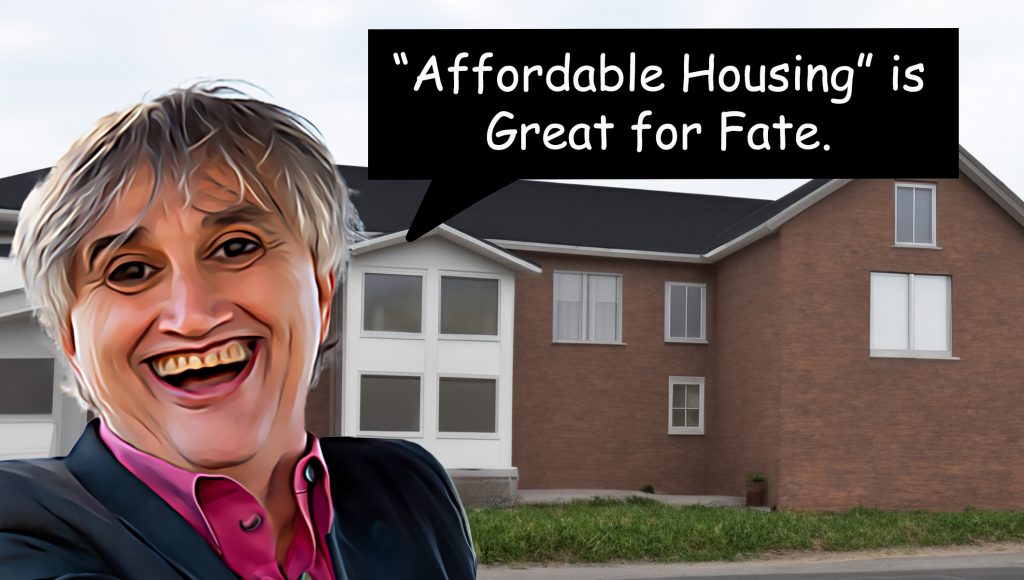In the realm of political discourse, few phrases carry as much weight as “affordable housing.” These two words are laden with the promise of alleviating a growing societal concern – the lack of access to reasonably priced housing for all. However, lurking beneath the surface of this seemingly benign phrase is a web of interpretations and assumptions that serves as a potent tool for political manipulation. It’s a term that seems to garner consensus, but often hides a divisive agenda that can have far-reaching consequences.
The Illusion of Consensus
The phrase “affordable housing” is a masterstroke in political rhetoric. At first glance, it appears to convey a straightforward and universally accepted concept – homes that are within the financial reach of the average citizen. But the real challenge lies in defining what “affordable” truly means in a world of varying incomes, economic circumstances, and living standards. This ambiguity is where the manipulation begins.
Political actors capitalize on the public’s yearning for affordable housing, leveraging its inherent vagueness to gain support for policies that may not align with the public’s actual desires. In doing so, they exploit the gaps in understanding between different sections of the population, leading to a false sense of agreement while pushing forward their own agendas.
The Interpretation Spectrum
The brilliance of the term “affordable housing” lies in its ability to mean different things to different people. For a low-income family struggling to make ends meet, it might mean subsidized housing with rents well below market rates. For a middle-class professional, it could signify moderately priced housing in well-located neighborhoods. And for a real estate developer, it might mean the relaxation of zoning laws to encourage greater housing density.
These diverse interpretations allow political figures to gather support from various segments of society, each believing that the policy in question aligns with their own definition of affordable housing. This diversity of meanings fosters a facade of agreement, as individuals rally behind the term without fully comprehending the nuances of the policies they are endorsing.
The Mirage of Agreement
The public’s tendency to assume that everyone else agrees on the definition of “affordable housing” further plays into the hands of politicians. This collective assumption of consensus suppresses meaningful debate, as individuals hesitate to question a concept that appears to be universally understood. Thus, political manipulation thrives in an environment where the actual implications of policies are seldom scrutinized.
In reality, individuals might be unwittingly supporting policies that don’t resonate with their true beliefs. For instance, a citizen concerned about preserving their neighborhood’s character might support an affordable housing initiative, unaware that it could lead to increased housing density and alter the very fabric of their community. By exploiting this gap between perception and reality, politicians can advance agendas that might otherwise be met with resistance.
Housing Density: The Hidden Agenda
One of the most insidious ways in which the term “affordable housing” is manipulated is through the push for greater housing density. While this approach might be perceived as a solution to rising housing costs, it often leads to unintended consequences such as overburdened infrastructure, reduced green spaces, altered neighborhood dynamics, increased traffic and more taxes … to pay for the growth.
In the pursuit of densification, politicians use the banner of affordable housing to garner support, masking the true motivations behind their policies. By focusing on the apparent benefits of increased density, such as reduced commute times and decreased urban sprawl, they divert attention from the potential downsides. In this way, they exploit the public’s genuine concerns while pursuing an agenda that might not align with the broader interests of the community.
The term “affordable housing” exemplifies the subtle power of political manipulation. Its inherent ambiguity allows for diverse interpretations, fostering a superficial consensus that masks the true intentions of those who wield it. This manipulation is most evident in the push for greater housing density, where political figures can exploit the public’s desire for affordable living arrangements while sidestepping discussions about the broader impacts of their policies.
Hitting us at Home
In fact, this manipulation hits home more than ever as it unfolds in real-time. The citizens of Fate, TX, find themselves entangled in a web of political maneuvering orchestrated by none other than their own Mayor, David Billings. As he advocates for higher density and multifamily projects under the guise of “affordable housing,” it becomes clear that his motivations might extend beyond the well-being of the community he serves. Instead, he seems to be pursuing personal gains, aligning himself with political allies and furthering his own career. All one needs to do is follow his LinkedIn profile and you will find dozens of reposts for “Strong Towns”, a leftist run organization who’s goal is the urbanization of rural america.
In this context, the citizens of Fate must be vigilant and informed. It’s imperative that they take a proactive stance, demanding transparency and posing direct and difficult questions regarding Mayor Billings’ motivations. The future of their community depends on their ability to see through the veil of rhetoric and unveil the true intentions behind his actions.
Furthermore, as elections loom on the horizon, the citizens of Fate must not allow Mayor Billings to run unopposed. The power of democracy lies in the ability to present alternatives, to question incumbents, and to ensure that public officeholders are held accountable for their decisions. By actively participating in the electoral process, citizens can foster an environment where political manipulation is challenged and where the genuine concerns of the community take precedence.
In conclusion, the term “affordable housing” stands as a testament to the nuanced art of political manipulation. The public’s diverse interpretations of the phrase create an illusion of consensus, allowing politicians to further their own agendas under the guise of addressing a critical societal issue. As exemplified by the actions of Mayor David Billings in Fate, TX, this manipulation is not a distant concept, but a reality that demands vigilant citizens. By asking the tough questions, demanding transparency, and actively participating in the electoral process, the citizens of Fate can steer their community towards a future shaped by genuine concern and true representation.

